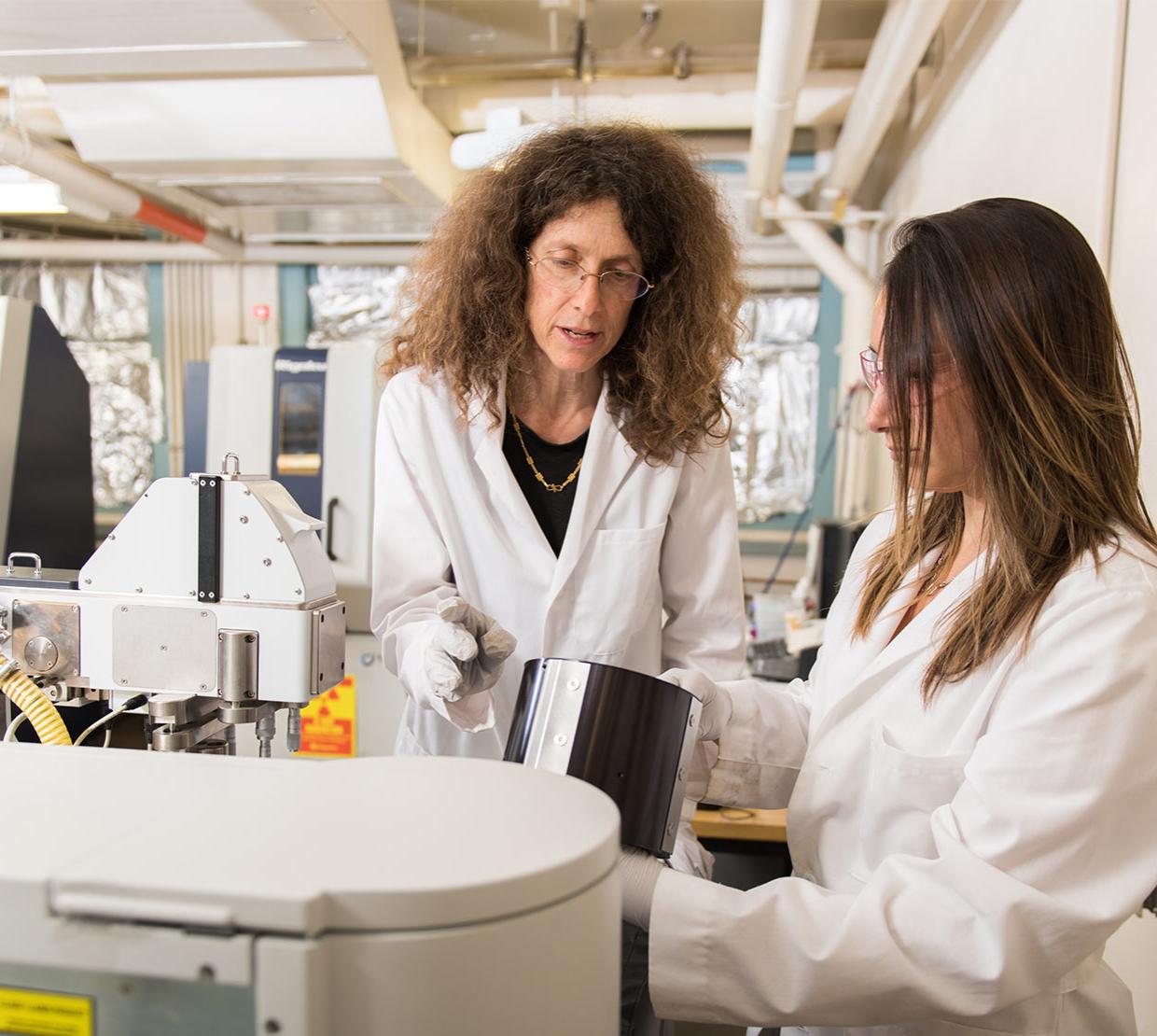A chemist known for her pioneering work in inorganic chemistry, Professor May Nyman, received the Humboldt Research Award from the Alexander von Humboldt Foundation in Germany. The award recognizes international leading researchers from outside Germany, and provides a paid stipend and invitation to conduct research at a German research institution for up to one year.
Nyman will start her fellowship in May 2021, when she will work in the lab of Carsten Streb, a chemist at the University of Ulm. Streb and Nyman both specialize in metal-oxo clusters (’molecular metal oxides’) and other nanomaterials. His lab focuses on energy storage and production using molecular clusters.
“I am excited to get back into the lab after seven years as a busy professor at the desk.”
In the Streb lab, Nyman will participate in these studies and learn the practice of electrochemical and photocatalytic studies of clusters – transferring electrons and/or light into clusters and evaluating their responsive behavior and performance in energy storage or hydrogen production.
In the second part of her Germany sabbatical, Nyman will go to Berlin to work in the lab of Franziska Emmerling at the Bundesanstalt für Materialforschung und -prüfung (Federal Institute for Materials Research and Testing) and Bessy II (the Berlin Synchrotron). This group uses cutting-edge X-ray analysis techniques to study processes in water. This includes analyzing solutions as acoustically levitated droplets to provide contaminant-free solutions and interference-free signals.
There, Nyman will learn X-ray absorption techniques and have the opportunity to collect data at the synchrotron. Her students at OSU and colleagues at the Streb lab will send samples to enhance their ongoing studies on the characterization of solids and solutions to understand how synthetic and natural materials form in water.
"Dr. Nyman’s work in Germany will allow her to develop some new techniques that will help her and her students continue to push these areas forward."
Overall, Nyman’s fellowship in Germany will broaden the research scope of the Nyman Lab, strengthen its collaborations with European colleagues and allow her to explore new collaborations and make friends.
“I’m am excited to get back into the lab after seven years as a busy professor at the desk,” said Nyman. “I’m looking forward to learning some new techniques to bring home to the Nyman Lab.”
The Nyman lab at Oregon State University explores new chemistries to understand the structure of crucial elements of the periodic table in nature and in synthesis. She studies their numerous applications in catalysis, electronic circuits, nuclear energy and environmental science.
“Humboldt Research Awards are one of the most prestigious international sources of scientific support,” said Roy Haggerty, Dean of the College of Science. “Dr. Nyman is at the leading edge of understanding metal-oxo clusters, which are important in manufacturing microelectronics, development of clean energy, and cleaning up contaminants in the environment. Dr. Nyman’s work in Germany will allow her to develop some new techniques that will help her and her students continue to push these areas forward.”
“It will not be all work,” said Nyman. “My family will also have the opportunity to experience some extended time overseas, something we have never done before.”
A distinguished researcher and tireless mentor
Nyman has taught as OSU since 2012, when she joined the Department of Chemistry as an associate professor. She and her research group have become highly sought collaborators and world leaders in applying the technique of X-ray scattering to understand the structure of metal-oxo clusters in solution to gain insights about the behavior of high-performance materials for energy storage, degradation of dangerous substances.
Her group investigates the relevancy of metal-oxo clusters in complex mixtures to develop a sustainable nuclear fuel cycle that includes nuclear material recycling, disposal, storage and cleanup.
Nyman has also distinguished herself as an energetic advocate for her students, especially for women and minorities She is an indefatigable mentor, investing much time and energy to help students accomplish their goals. While in Germany, Nyman will maintain contact with the undergraduate and Ph.D. students in her lab via Zoom.
She received the 2018 College of Science F. A. Gilfillan Memorial Award for Distinguished Scholarship. The award recognizes achievements in science by honoring a faculty member in the College who demonstrates a long and exceptional scientific career with nationally and globally recognized scholarly achievements. Click here read more about Nyman’s pathbreaking career.




